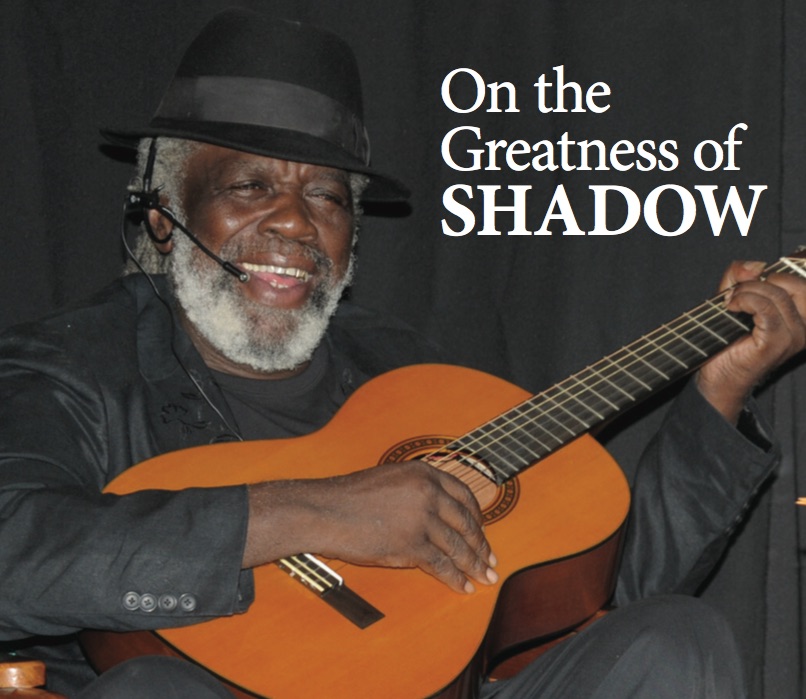
The lilting sounds of the voice of Winston McGarland Bailey, The Mighty Shadow, often filled my childhood home. Like mine, many households have a deep love for the artist who spoke to what Dr Suzanne Burke refers to as “…the Caribbean condition, in ways that are distinctly accessible, resonant, and revolutionary as a form of joy and a portal for release”.
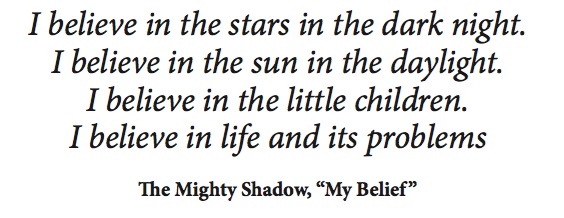
In the midst of an ongoing and ever-changing pandemic, music has become a most vital ‘portal for release’, and it was the conditions of lockdown that inspired Dr Burke and a group of other music enthusiasts – including Sean Samad, Erica Ashton, Omari Ashby and John Gill – to begin having a series of bi-monthly meetings (which were really bi-monthly listening parties). They call themselves Groundation Foundation.
“During lockdown, we started having these listening parties,” said Dr Burke, Head of the Department of Literary, Cultural and Communication Studies at UWI St Augustine. “We would do themes like empowerment, freedom, etc. And then we kind of pivoted, as the two months of lockdown turned into two years, and we started focusing on particular artists.” And naturally, Shadow became the topic of conversation. The morning after that heated Saturday night discussion, she could feel that the depth of topics being shared needed to be explored in a wider space.
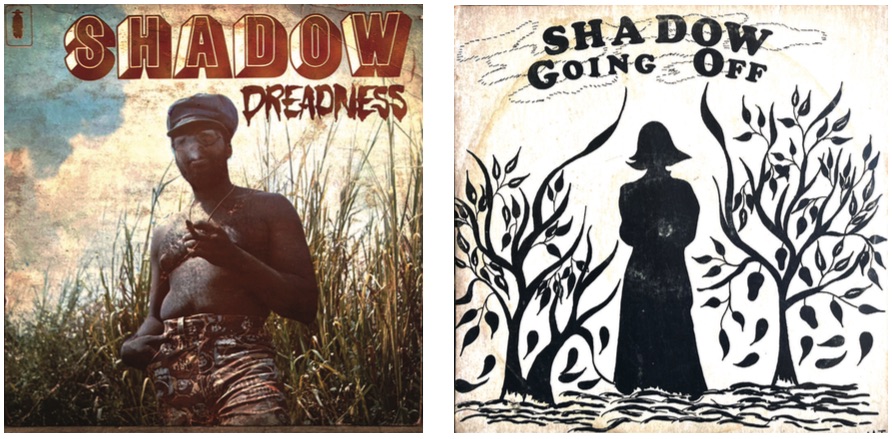
The richness of that night would become the precursor to “Dreadness – The Mystical Power, Philosophy and Performance of Shadow”, a two-day symposium on Shadow and his body of work that ran from March 3-4. Months after his 80th birthday, which was on October 4th, the symposium sought to celebrate and analyse some of the themes, ideas and musical choices that made Shadow’s work so unique and reflective of the society around him, through the lens of the concept of “Dreadness”.
Rayshawn Pierre, who opened the discussion with her paper entitled, “Uncovering the Canon – The Sound of Social Agency”, addressed the meaning of the word and how it defined Shadow’s work. “Dictionaries do not provide a large enough scope for the word Dreadness, and perhaps this is a good thing… Dreadness is disruption. This has less to do with the dominant worldview and everything to do with the will to dismantle that which has been deemed common but dysfunctional— and at any possible cost.”
Winston Bailey was, seemingly effortlessly, a voice of the people. And even if judges on stages did not always recognise this, the crowds did. He was able to speak on topics that truly moved the people, because he truly was of the people. “Living in the small town of Mt Lambert, we saw Shadow moving amongst us regularly in his unfussy way from his home in Mt Hope,” recollected Jessel Murray, the Deputy Dean for Distance and Outreach in the Faculty of Humanities. “We can imagine if he were here now, he would wonder what all the fuss is about. He was a man like that.”
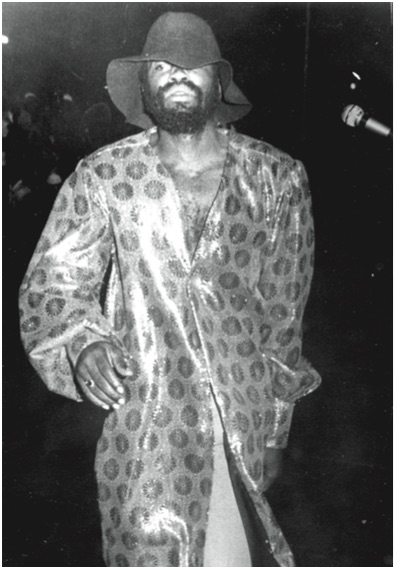
Quiet, introverted, but fiercely observant in his music. He was not always given his roses (although he was presented with an Honorary Degree by The UWI in 2018, the year of his passing), but he knew the worth of the music he was creating. Abeo Jackson, who presented on day two of the conference her offering entitled “Man Cyah Take Horn: The Interactions of Colonialism, Capitalism, and Gender Stereotyping”, said of the maestro that he was “...extremely sure of his own Dreadness as a lyricist and observer of the world.” And even today, decades after it was penned, his music rings true to the society we live in now. He spoke of the realities of poverty, of the nature of Caribbean relationships, of the ancestral traditions that trace lines back from our lives to those that came before us. These ideas are evergreen; but now, in the face of a post-pandemic world, they are more relevant than ever. “When everything is moving, normally, you may not have the time to reflect on the structures of power that hinder you, both internal and external,” said Dr Burke. “Because the pandemic slowed us down, it gave us the opportunity to really reflect and analyse these structures that have been with us forever.”
As several of the symposium panelists noted, Shadow’s work has always been associated with some of the darker characters in our Carnival history – Devil mas, Jab molassies, midnight robbers.
Long ago in Tobago The Carnival was not so Was plenty jab jab and devil They came down to Les Coteaux...
Pay the Devil was a tribute to one of the masqueraders of Shadow’s Tobago childhood, and throughout his music he had an affinity for this type of mas.
As Rayshawn Pierre noted in her symposium presentation, “Shadow, like these custodians of darkness, has never been afraid of what it means to be dark.”
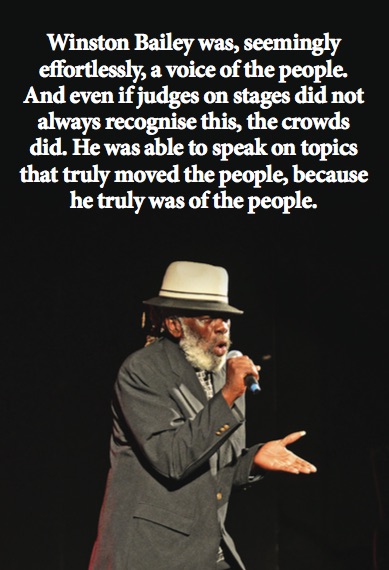
While Shadow had a penchant for incorporating our history and culture into his lyrical writing, he was not stuck in the past. Martin Raymond, assistant professor at the University of Trinidad and Tobago (UTT) within the digital media arts programme and one of the musical minds who has shaped the sounds of much of our popular music, spoke on his experiences working with Shadow and seeing firsthand how his mind worked:
“He knows that music has always been rooted in these ancestral traditions,” said Raymond. “He was always forward thinking. In fact, one could actually describe Shadow in the canon of an Afro-Futurist.” As poignant as his work still is now, one cannot help but feel that he must have had some sort of strange insight into the trajectory of a world after his death.
In the days following what might be the most unusual and unprecedented Carnival we have ever experienced, it was interesting to hear the speakers reflect on Shadow’s understanding of Carnival’s role in upending the status quo and subverting the power dynamics in our postcolonial Caribbean. What would he make of Carnival 2022? One can only wonder. With local musicians and artistes in particular having to restructure their way of living and creating for the past two years, our music is moving in unexpected and new directions out of necessity. But we hope that the creators of tomorrow can continue the legacy of our ancestral traditions and, as Dr Burke said of Shadow, continue “speaking truth to power”.
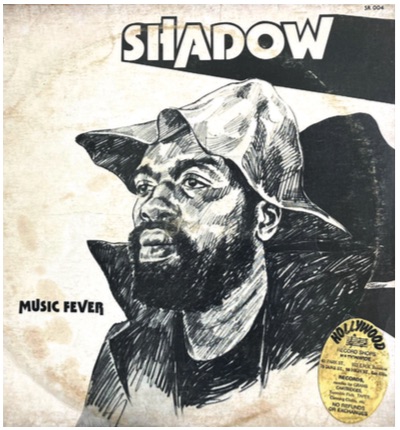
With so much vibrant conversation coming out of this dive into the works of Shadow, I wanted to know if there was more to come. “People have been asking the same question that you’ve been asking,” said Dr Burke with a laugh. As far as Shadow goes, there are hopes to continue the discussion with a focus on his album covers and the stories that he told visually as well. “Those album covers were artistic pieces in and of themselves... You could just read Shadow’s album covers and read all of the things that he was trying to say in his music.”
And of course, the rest of the listening party topics will hopefully be expanded on as well. “We’ve decided that we will continue to interrogate the popular musics of Trinidad and Tobago, and the icons of our popular musics… And so, we will continue this process of us looking at ourselves and examining our society through the work of our popular music icons.”
One of the exciting aspects of the conference was hearing perspectives from great minds from across both The UWI and UTT. “One of the things that I try to do, in the conferences that I am involved in, I try to bring in UTT, because they have a music programme,” says Dr Burke. “As national academics working in this area, we need to reach across the aisle and say — what are you doing with your programme? We are too small to be in silos.”
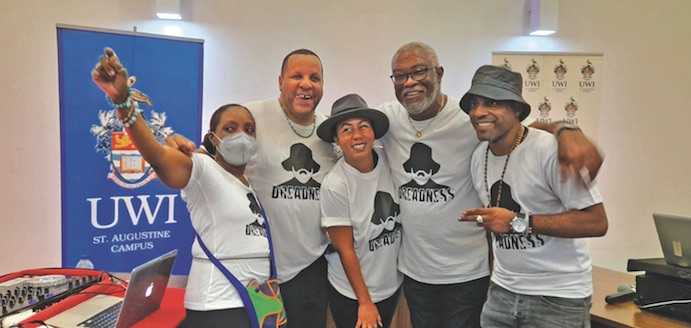
From Left: Dr Suzanne Burke with DJ Kabuki, DJ Honey Colada, John Gill, and master of ceremonies Mark Nottingham at the virtual Dingolay Dance Party held on the final day of Dreadness.
With music keeping many of us afloat right now, we cannot underestimate its value in capturing the truth of our lives. “This is really how people cope every day,” said Dr Burke. “Every day, people listen to music, and it gives them the ability to go out and face whatever they’re facing.” And so, we must celebrate the music that tells our stories, and reflects the world back at us in ways that sometimes speak truths we might not be ready to hear.